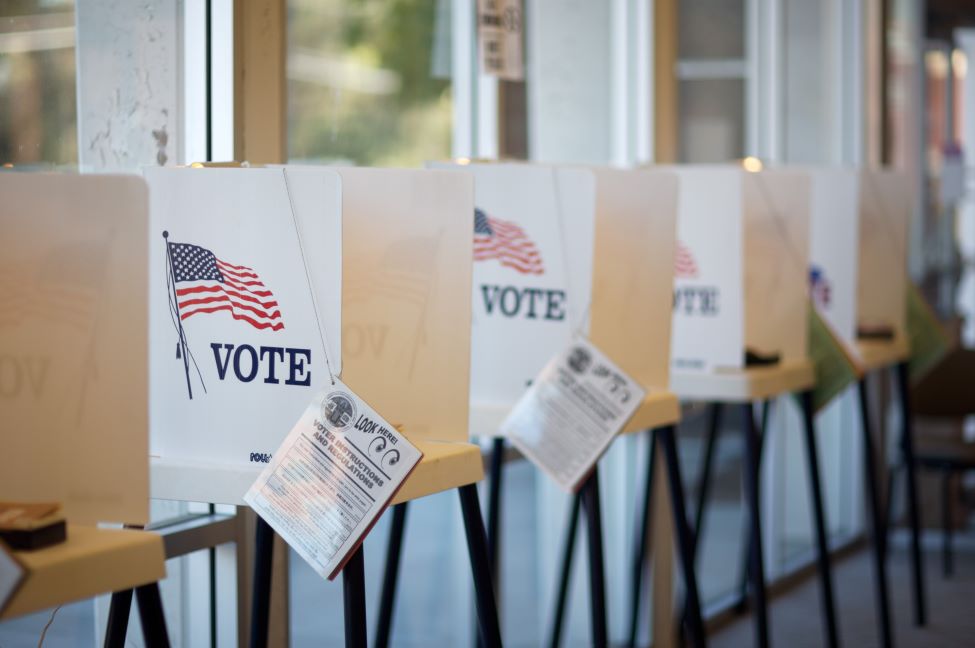Poll: Florida Republicans Strongly Support Donald Trump for 2024 Run

2024 election cycle will be here very soon.
Amidst massive legal battles involving former U.S. President Donald Trump and jockeying for control of the GOP that puts Florida Gov. Ron DeSantis in the public light, 69 percent of registered Republican voters in Florida still say they support Trump as the 2024 Republican presidential nominee, while another 18 percent say they “somewhat support” him, according to a recent poll conducted by Florida Atlantic University, in collaboration with Mainstreet Research.
According to the poll, Trump would win over DeSantis by a significant margin if the primary were held when the poll was completed between April 13-14. When the same group of voters was asked about their choice for the upcoming Republican presidential primary, approximately 6 out of 10 (59 percent) chose Trump, while about 3 out of 10 (31 percent) chose DeSantis.
“Former President Trump continues to be a strong candidate for the Republican nomination and his support appears durable and consistent,” said Kevin Wagner, Ph.D., professor of political science at FAU.
The poll collected the opinions of 1,081 registered voters in Florida and was conducted by Mainstreet Research and the Department of Political Science and School of Communication and Multimedia Studies within the Dorothy F. Schmidt College of Arts and Letters at FAU.
Still, those polled suggest Trump and DeSantis are connected at the hip through a potential GOP presidential ticket: 45 percent of Republican voters chose him as their second choice for the upcoming Republican presidential primary, while 23 percent chose Trump as their second choice.
“So far, none of the other candidates are close, and it looks like a two-man race,” said Luzmarina Garcia, Ph.D., assistant professor in the Department of Political Science at FAU. “However, even this early in the race, the vast majority of Republican respondents indicated that they had made up their minds for a presidential candidate.”
However, the poll reveals regional and generational gaps among Republican voters. Trump wins decisively against DeSantis in the Tampa Bay area (69 percent for Trump vs. 22 percent for DeSantis); in southwest Florida (80 percent for Trump vs. 7 percent for DeSantis); and in Palm Beach County (65 percent for Trump vs. 33 percent for DeSantis). However, in northwest Florida, Trump and DeSantis tie with 43 percent each. As for the generational gap, Trump wins 66 percent of support among voters who are 50 to 64 years old, while his support among younger voters (18 to 34) is 40 percent.
Economy, immigration and abortion lead all Florida voter concerns. Florida voters identify the economy (38 percent) as the most important issue, followed by immigration (18 percent) and abortion (16 percent).
Party affiliation made a major difference as to the ranking of the issues. Economy (51 percent) is the most important issue followed by immigration (28 percent) among the voters who intend to vote for the Republican party. In contrast, abortion (32 percent) is the most important issue followed by the economy (21 percent) among the voters who intend to vote for the Democratic party. Undecided voters chose economy (43 percent) as the most important issue followed by immigration (10 percent).
Cable news sources remain a popular source of political news with 40 percent of voters ranking this as their primary source for information. However, the poll also showed a continued reliance on online media as a major source of political information for voters, with 13 percent of respondents indicating they turn to social feeds, while 19 percent said they turned to other blogs and websites for political news.
“Political communication remains heavily influenced by the internet and digital media,” said Robert E. Gutsche, Jr., Ph.D., associate professor in FAU’s School of Communication and Multimedia Studies and editor of “The Future of the Presidency, Journalism and Democracy: After Trump.” “The problem remains, however, in understanding just how deeply voters rely on their politically affiliated messages and their true impacts on the legitimacy of journalism from more traditional outlets.”
The poll margin of error is +/- 3 percentage points at the 95-percent confidence level. Margins of error are higher in each subsample. The survey was administered using automated telephone interviews (Smart IVR).
-FAU-
Tags: research | arts and letters